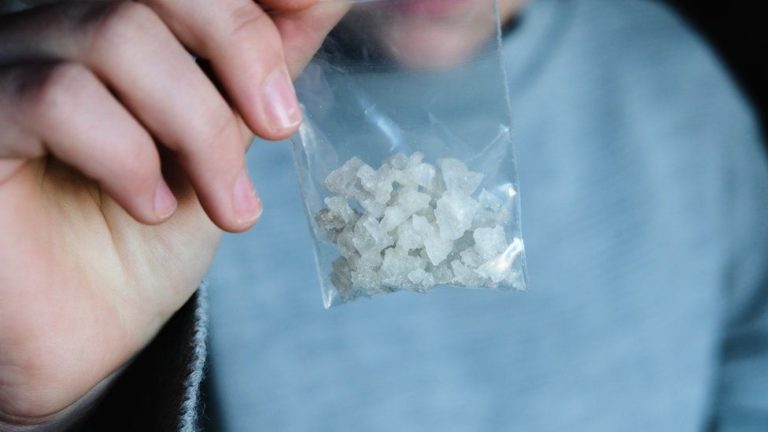Heroin & Weight Loss: Does Heroin Make You Skinny?
The effects of substance abuse on the body are no secret, and heroin can have some of the worst side effects. While some of these effects can be painful, others can change your physical appearance. Due to its potential for weight changes, one question that has been wondered among many heroin-addicted individuals is, “Does heroin make you skinny?”
This article dives into the relationship between heroin use and weight changes, aiming to answer the question and shed light on this topic. By understanding why individuals use heroin, if heroin makes you skinny or causes weight gain, and how to manage weight loss, individuals can make informed decisions before using.
Understanding Heroin Use
Heroin is a highly addictive and potent substance that is derived from morphine, an opium poppy plant. This classifies heroin as an opioid, causing individuals to become addicted and experience severe withdrawal symptoms. Heroin can typically be consumed through injection, smoking, or snorting, producing rapid and intense effects. This rapid onset of effects leads to continual drug use.
According to the National Institute on Drug Abuse, 1.1 million individuals used heroin in 2021, with 9,173 dying from a heroin overdose. This showcases the dangers of using heroin and the consequences individuals may face. While there are many dangerous side effects of using heroin, it can cause significant changes in body weight.
Learn More: The Stages of Heroin Addiction

Does Heroin Make You Skinny?
In short, yes, heroin does make you skinny. One of the biggest side effects of heroin use is weight loss which is typically the first sign of heroin addiction. There are many reasons why heroin may make an individual skinny, with causes such as appetite suppression, functioning of the pituitary gland, damage to the gastrointestinal tract, and more.
- Appetite Suppression: Individuals addicted to heroin often experience weight loss due to its ability to reduce appetite and disrupt other bodily functions. This can make them dangerously thin. When hunger isn’t felt, weight loss can occur rapidly. This suppression of appetite is linked to the disrupted function of the pituitary gland, the gland responsible for managing our hunger signals. As individuals miss these hunger signals, eating disorders may occur alongside heroin addiction.
- Pituitary Gland Function: Beyond reducing appetite, heroin also interferes with the proper functioning of the pituitary gland. This gland produces hormones that regulate appetite, so when it’s affected by heroin, a person’s ability to feel hungry is disrupted. Additionally, heroin diminishes the production of substances in the digestive system responsible for triggering hunger. This leads to individuals not eating and, subsequently, severe weight loss.
- Gastrointestinal Tract Damage: Individuals who use heroin can experience many symptoms related to the gastrointestinal tract and its function. Heroin abuse is notorious for causing frequent and intense nausea, causing individuals to not eat. It is also known for causing severe constipation, which reduces appetite and results in weight loss.
- Vitamin & Electrolyte Deficiencies: Heroin use can lead to problems with electrolytes and vitamins in the body. Dehydration and poor nutrition can cause electrolyte imbalance, leading to heart rhythm issues and death. Additionally, weight loss and malnutrition from heroin use can result in vitamin deficiencies, which can bring about other serious problems like an increased risk of bleeding and weakening of bones.
- Hormonal Disruptions: Losing weight too quickly can disrupt the balance of essential hormones like dopamine and serotonin. These hormones help control our moods. When someone is not getting enough nutrients, they may experience mood swings, sadness, worry, and other mental health issues like depression and anxiety.
Does Heroin Cause Weight Gain?
Typically, heroin use is associated with weight loss. However, individuals can experience weight gain while using heroin. As mentioned above, individuals may experience severe and frequent nausea when using, causing them to lose weight rapidly. Some individuals may combat nausea by using other substances, such as marijuana.
One of the main effects of using marijuana is an increased appetite. By smoking marijuana after using heroin, it can stimulate an individual’s appetite. Stimulating the appetite can result in binge eating from using both substances, ultimately leading to the individual gaining weight.
Continue Reading: Recovery Nutrition: 7 Tips for Eating a Healthy Diet During Addiction Recovery

Other Side Effects of Heroin Abuse
On top of causing fluctuations in weight, heroin has other severe side effects to be aware of. These effects can cause damage to an individual’s physical and mental health. These effects may include:
- Dry mouth
- Constipation
- Increased energy
- Isolation
- Insomnia or sleeping too much
- High blood pressure
- Increased heart rate
- Severe itching
- Apathy
Managing Weight Loss After Heroin Use
As individuals recognize their addiction and want to begin their recovery journey, they must first learn how to manage their weight loss after heroin use. Recovering from heroin addiction is no easy task and requires a comprehensive approach. As addressing weight loss is a vital part of the recovery process, it’s important to approach weight management with a balanced, gradual, and holistic perspective. While not every way to manage weight loss will work for every individual, there are some common strategies to use. These strategies include:
- Balanced Eating Habits: Having balanced eating habits after stopping heroin use is critical to managing weight loss. Individuals can support the body’s healing process by incorporating nutrient-dense foods into their diet. While going through recovery, individuals may experience withdrawal symptoms. These symptoms can be hard on the body, so having a healthy and strong body is essential to recovering from heroin addiction.
- Regular Physical Activity: Engaging in regular physical activity aids in managing weight loss and improving overall well-being. Regular exercise can increase appetite, enhance metabolism, and improve mood. Beginning with softer activities, such as walking, yoga, or swimming, can benefit individuals.
- Realistic Goals: One of the most important aspects of recovery is to set realistic goals. Rapid weight gain can be possible after stopping heroin use, which can cause individuals to relapse to keep the weight off. This is why it is crucial to approach heroin recovery by setting realistic goals to create a positive mindset and avoid disappointment.
- Professional Support: Professional support can be incredibly beneficial to individuals recovering from heroin addiction. Not only can the withdrawal symptoms be potentially life-threatening, but providing a safe and effective recovery space can prevent relapse. Medical professionals will work with individuals to create an effective weight management plan, address the underlying causes of addiction, and monitor their progress. This support typically occurs within an addiction treatment program.
Read More: 5 Healthy Activities to Try When Overcoming Heroin Addiction

Heroin Addiction Treatment in Asheville, NC
If you have noticed an individual rapidly losing weight while using heroin, they can face dangerous consequences. It is essential to recognize the signs of an individual abusing heroin to avoid these consequences and to prevent further addiction. However, an individual may already be addicted when others notice the significant weight loss. This would be the time to receive care from a heroin addiction treatment center.
At Oasis Recovery Center, located in Asheville, NC, we value addressing every aspect of addiction to properly care for and treat our clients. By utilizing our innovative, comprehensive, and individualized treatment model, our clients receive the best addiction treatment services possible. With various treatment options and therapies, all of our client’s needs can be met.
If you or a loved one are struggling with heroin addiction or other substance use disorders, contact us today to learn more about programs.








